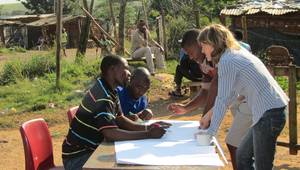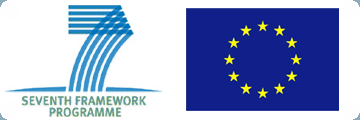Chance2Sustain Seminar 2013 in Durban, South AfricaThe Chance2Sustain project financed by the Seventh Framework Programme of the European Union will hold its latest dissemination meeting in Durban, South Africa on 18 October 2013. This seminar will look at ten cities in South Africa, India, Peru and Brazil.
An EU funded research programme which explores to what extent states and citizens in Indian, South African, Brazilian and Peruvian cities, with different patterns of economic growth, use mega-projects, housing, service provision, participatory spatial knowledge management and participatory budgeting to direct urban governance towards, or away from, more sustainable development.
The seminar will include a presentation of the final results of the EU project research from the ten cities across the world, including Durban and Cape Town, by the international EU team. The project has focused on five main areas of research: - the role of mega-projects in shaping growth - social movements and informal and low cost housing development - water governance and climate change - spatial knowledge production: the role of ITC and GIS - participatory budgeting.
These five areas of research have been integrated to provide an understanding of sustainability and resilience in the ten cities across four countries using comparative urban research theory and methods. This seminar is the first presentation of the integrated case study material from the ten cities across the five research themes.
When? Friday 18th Otcober 2013 Programme: 08h00 – 10h30 Comparison of the ten cities across five themes: The integrated results 11h00 - 13h00 The main similarities and differences across the ten cities: Lessons for Durban Where? Durban Botanic Gardens Visitors Centre RSVP to Ebrahim.Nabi@durban.gov.za or Tel: 031 311 4276 by Monday, 14 October 2013.
|
Chance2Sustain is a research project examining how governments and citizens in Indian, South African, Peruvian and Brazilian cities with differing patterns of urban economic growth make use of participatory (or integrated) spatial knowledge management to direct urban governance towards more sustainable development. Read more Recent Chance2Sustain Publications |
|
|
|
|
|


